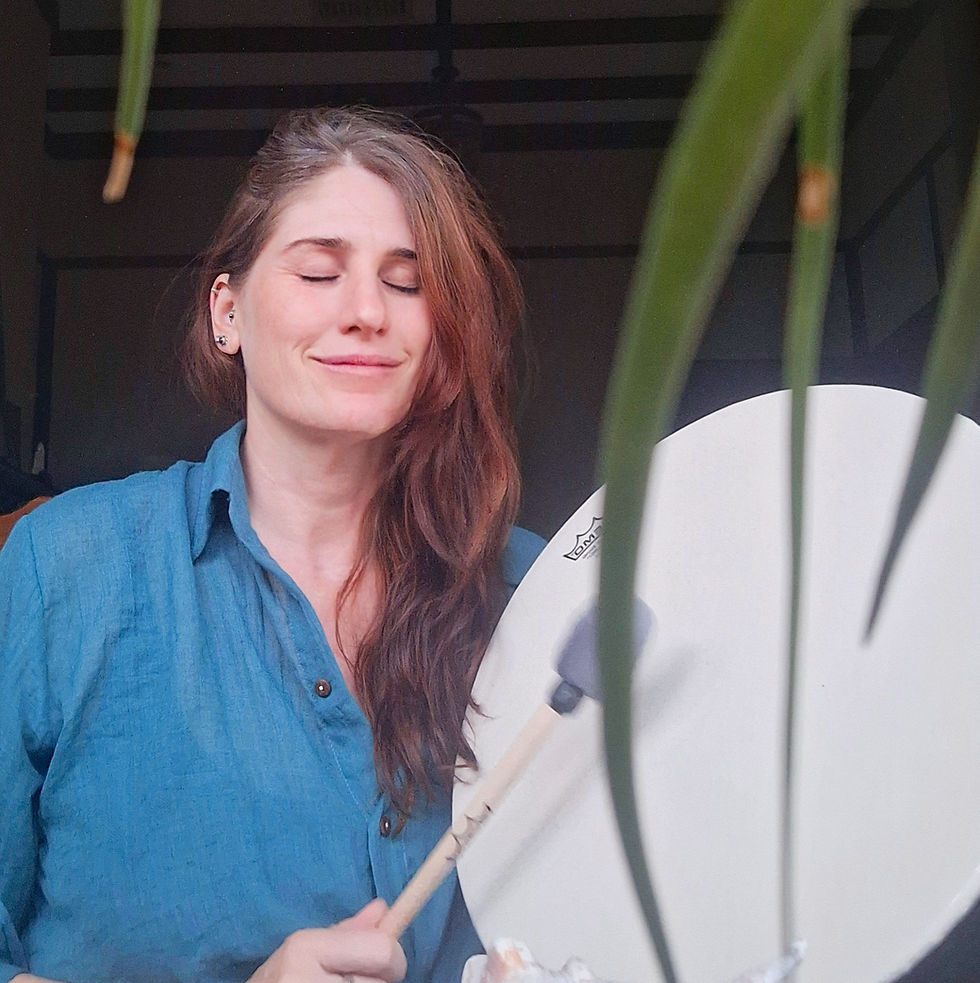Coming Home to Yourself: Kinesiology and the Journey to Secure Attachment
- Melinda E. Tupling

- Aug 3, 2025
- 3 min read

Returning to Secure Attachment Through Kinesiology
Our early relationships shape the way we see and interact with the world. From the moment we are born, our nervous system is wired to seek connection, safety and love. The way our caregivers responded to our needs created a blueprint - known as our attachment style - that influences how we relate to ourselves and others throughout life.
What Are Attachment Styles?
Attachment theory identifies four main styles:
Secure Attachment - When our needs were met with consistency, love and safety, we learned that the world is safe and relationships are supportive.
Anxious Attachment - If care was inconsistent or unpredictable, we may have learned to seek constant reassurance, fearing abandonment.
Avoidant Attachment - When our emotional needs weren’t acknowledged or met, we might have learned to shut down or rely only on ourselves.
Disorganised Attachment - When care was both a source of comfort and fear, our nervous system may have become confused, creating patterns of push-pull in relationships.
While these patterns are formed in childhood, they aren’t fixed. They live in the subconscious mind and nervous system, showing up as emotional triggers, relationship difficulties, or feelings of unworthiness. This is where kinesiology offers a powerful pathway forward.
How Kinesiology Works With Attachment Healing
Kinesiology is a gentle yet profound way to access the root causes of these patterns. Using biofeedback through muscle testing, kinesiology bypasses the conscious mind and communicates directly with the body and subconscious - where old memories, emotions and beliefs are stored.
When we explore attachment wounds, kinesiology helps us:
Identify core beliefs that keep us feeling unsafe, unworthy, or unlovable.
Release stored stress or trauma from the nervous system and energy body.
Repattern limiting programs and restore balance to the mind-body-heart connection.
Reconnect with self-compassion and inner security, which naturally supports healthier relationships with others.
Through balancing techniques such as acupressure, energetic clearing, guided affirmations, and nervous system regulation, kinesiology helps to shift the body from old survival responses back into a state of trust, calm and openness.
Returning Home to Secure Attachment
True healing is about coming home to ourselves - learning that it is safe to open our hearts, trust our intuition and connect deeply. At the heart of this journey is healing our primary relationship: the one we have with ourselves. We are with ourselves from the first breath to the last, and when we tend to this foundational connection - meeting ourselves deeply and with care and compassion - our external relationships become healthier and more harmonious - we can only meet others as deeply as we've met ourselves.
When we heal the patterns formed in early relationships, we begin to embody secure attachment:
We feel grounded and present.
We can give and receive love with ease.
We create boundaries that feel natural and kind.We stop seeking validation outside of ourselves and start trusting our own worth.
Kinesiology doesn’t just “treat the symptoms” it helps us gently unravel the root of our attachment wounds so that we can step into our authentic selves and cultivate relationships that are loving, balanced and deeply fulfilling.
Gentle Self-Reflection Practice
Here are a few journaling prompts to help you connect with your own attachment patterns and what you need to feel safe and supported:
When I feel triggered or anxious in a relationship, what do I need most in that moment? (E.g. reassurance, space, understanding, touch, words of affirmation.)
What messages or beliefs about love did I learn growing up? Which of these feel true and which ones do I now wish to release?
What helps me feel safe, grounded and worthy of love - even when I am alone?
You might like to take a few deep breaths, place your hand on your heart and allow your answers to flow without judgement.
Ready to Heal?
What is it worth to you to heal from something that deeply impacts your lives, your relationships, your health and the health and happiness of those we love - something that can keep us so stuck?
As Jung so wisely said: “Until you make the unconscious conscious, it will direct your life and you will call it fate.”
For long-lasting change, it’s recommended to commit to 3–6 sessions for the issue you'd like to work on. It's been around a while, it's time to heal deeply and move forward!!
This August, I’m offering a Winter Warmer Sale - purchase three sessions upfront and receive a $50 discount.
Interested? Book your free phone consultation today and let’s create your personalised healing plan.
You don’t need to heal alone. If talk therapy hasn’t felt like quite enough and you’ve been searching for something more holistic, something that addresses mind, body, heart and soul then let’s journey together!
.png)






Comments